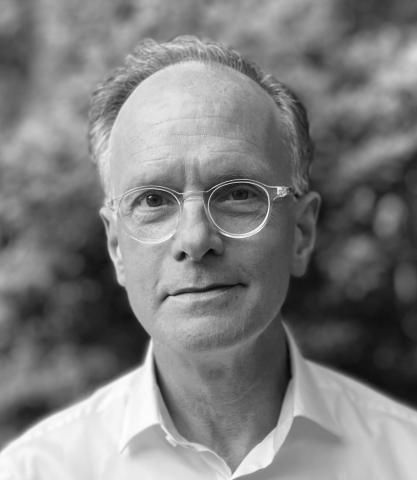
Paul D. Halliday
NAU 454 / M 10:00-11:00 am ; T 2:00 - 3:00pm
Education
BA, Wesleyan University; MA/PhD, University of Chicago
Publications
Books
Co-editor, with Eleanor Hubbard and Scott Sowerby, Revolutionising Politics: Culture and Conflict in England, 1620-1660 (2021)
Habeas Corpus: From England to Empire (2010): Inner Temple Book Prize
Dismembering the Body Politic: Partisan Politics in England’s Towns, 1650-1730 (1998)
Essays and Articles
“Persistence of Practice in Law’s Parwana and Palm Leaf Empire,” Law and History Review (2023)
English Laws, Global Histories; or, What Makes a Court Supreme?" [NACBS presidential address] Journal of British Studies (2023)
"England's Human Rights Revolution, 1646-1652," in Revolutionising Politics: Culture and Conflict in England, 1620-1660
"Brase's Case: Making Slave Law as Customary Law in Virginia's General Court, 1619-1625," in Musselwhite, Mancall, and Horn, eds., Virginia 1619: Slavery and Freedom in the Making of English America (2019)
"Legal History: Taking the Long View," in Dubber and Tomlins, eds., The Oxford Handbook of Legal History (2018)
"Making the Charter Great: Claiming Rights in Law’s Visual and Emotional Vernacular," Emotions: History, Culture, Society (2018)
“Birthrights and the Due Course of Law,” in Hutson, ed., The Oxford Handbook of English Law and Literature, 1500-1700 (2017)
“Habeas Corpus,” in Tushnet, Graber, and Levinson, eds., The Oxford Handbook of the U.S. Constitution (2015)
“Authority in the Archives,” Critical Analysis of Law (2014)
“Blackstone’s King,” in Prest, ed., Re-Interpreting Blackstone’s Commentaries: A Seminal Text in National and International Context (2014)
“Laws’ Histories: Pluralisms, Pluralities, Diversity,” in Benton and Ross, eds., Legal Pluralism and Empire, 1500-1850 (2013)
Co-author, with G. Edward White, “The Suspension Clause: English Text, Imperial Contexts, and American Implications,” Virginia Law Review (2008): Sutherland Prize of the American Society for Legal History
Research
I first became interested in how law accommodates new ideas and social practices while writing Dismembering the Body Politic, a book concerned with law's response to the origins of partisan politics. In Habeas Corpus: From England to Empire, I explored how the writ of habeas corpus arose from royal power, not against it. By making the judge sovereign, habeas corpus protected and transformed ideas about the many kinds of liberty claimed by those who used the writ in England, Quebec, India, and beyond. Habeas corpus thus gave people across the empire new ways to shape the exercise of authority. Only legislative action, in Parliament or in colonial assemblies, would hinder the work of judges who used the writ to "hear the sighs of prisoners."
I am pursuing a number of leads these days. In a project I call "the Stuff of Law," I am developing a history of the senses and law's material forms from the fifteenth century to the twentieth. For instance, I am curious about how the adoption of paper in a parchment world changed many aspects of legal practice and thought; about how court clerks and their control of court archives generated judicial authority; and about how the design of English and imperial courthouses shaped the law made inside them. More generally, I am interested in the global history of English law from the sixteenth to the nineteenth centuries, and in particular, the role of judges in constituting the empire, from the Caribbean to Cape Town to Colombo. At the moment, I am preparing a book on the work of English law in Sri Lanka in the early nineteenth century, the adoption there of jury trials in criminal cases, and repeated contests between justices and the island's British governor, especially during security crises.
Courses
HIEU 2111: England, Britain, Empire, 1500-1800
HIST 2213: The Rule of Law: A Global History
HIEU 3471/LAW 9286: History of English Law, to 1776
HIEU 3501: Doing Legal History of England and Empire
HIST 4501: English Law and Empire, 1600-1860
HIST 5130/LAW 9233: Global Legal History
HIEU 7261: Graduate Colloquium on Early Modern English History
9000-Level Graduate Tutorials: English, British, and Imperial History, 1500-1800; English Legal History; Global Legal History
Graduate Advising
These days, I work only with graduate students who have a primary interest in legal history, especially in Britain and around its empire, ca. 1500-1900, rather than with those whose main interests are in social, political, or religious history; students not principally interested in legal history would be better advised by someone elsewhere whose main interests are in other subfields. Students here include those who may seek careers in law or the legal academy as well as in history departments, and those who may work outside the academy, for instance in public history, museum curation, or library special collections departments. We have a marvelous group of legal historians linking the History Department and our Law School. I encourage all my graduate students to develop broad-ranging ideas and methods with the help of colleagues who study law on every continent, from the ancient world to the present. These professors, along with students in both schools, comprise the community we call GLH@UVA. This Global Legal History group meets regularly to discuss work in progress by members and guests, to meet authors of new books, to work on professional development, and to enjoy each other's company. This community life is integral to the learning we do together. Students should keep an open mind about where their interests and professional lives might take them, within and beyond the academy, as they progress through the PhD and beyond. Potential applicants wanting to study legal history in Britain, its empire, or around the globe should contact me before applying. Nothing is more important to navigating graduate school than working with an advisor well suited by temperament and interests to help you develop your own intellectual agenda.